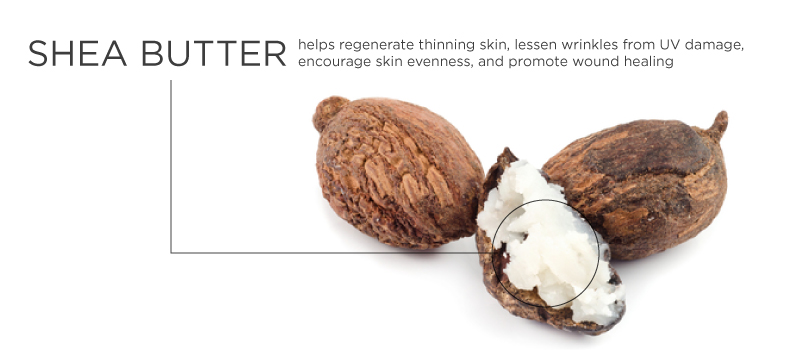I am very pleased to introduce Clare Oparo for this guest post. She is the founder of Wolf & Moroko, Africa’s brainy beauty blog. She loves skin care, thought provoking literature and fabulous shoes!
By Clare Oparo
The cradle of mankind can be a harsh environment and for centuries, the African people have turned to plant oils to nourish, soothe and protect their skin from the elements. Today, studies show that the essential fatty acids in plant oils help protect and maintain a healthy skin barrier. From the deserts of Morocco to the beaches of Zanzibar, the evidence of ancient African beauty knowledge is clear in the millions of people with healthy, glowing skin.
Below are some of the powerful plant oils native to Africa, that have stood the test of time, proving themselves by healing many a skincare concern.
Argan Oil
Native to the North African nation of Morocco, argan oil is extracted from the nuts of the Argan tree. In its purest form, argan oil has a light nutty smell and is golden in color which I like to think is one of the reasons it’s called ‘the gold of Morocco.’
Since pure argan oil is time consuming and very expensive to produce, many sellers mix it with other oil (like olive oil) which is such a shame since pure argan oil has wonderful skincare benefits. Argan oil has three times the amount of the powerful antioxidant Vitamin E than is found in olive oil.
According to Rana Argan Oil, a UK beauty company that specializes in pure argan oil, to make sure you are purchasing pure argan oil, the ingredients on the label should say only, Argan oil or Argania Spinosa Kernel oil. Some companies may also include the minerals and vitamins found in the oil.
Baobab Oil
Dotted across the African Savannah, in 32 countries, the native baobab tree stands strong and proud. The prehistoric tree is known as the ‘Tree of Life’, absorbing water during the rainy season and storing it in its trunk. This enables it to survive years of drought and live up to 1500 years.
At around 200 years, the baobab tree produces a nutrient-dense fruit. Baobab oil is extracted from the seeds of this fruit in all its deep golden colored, earthy scented glory.
Baobab oil is rich in antioxidants, notably Vitamin C and beauty companies like Aduna have recognized the health and beauty benefits of baobab oil.
Coconut Oil
The African coastline is teeming with coconut trees. It therefore comes as no surprise that every part of the tree is used in one way or another.
The leaves can be used as ‘makuti’ a raw material to make roofs, fences, mats and baskets. The fruit contains coconut water, a refreshing and nutritious drink to quench your thirst under the hot, unforgiving sun. The flesh of the coconut fruit can make any meal a delicacy. The oil from the coconut can also be used in cooking.
Coconut oil has the right combination of molecular size and shape and the right chemical structure to penetrate the skin and work from within. The high percentage of saturated oils in coconut oil also makes it widely used in skincare.
Growing up at the coast of Mombasa in Kenya, I learned the moisturizing benefits of pure coconut oil early in life. I continue to have it as a staple in my skincare and hair care; what a wonderful way to deal with my dry, eczema prone skin!
Marula Oil
Marula oil is extracted from the nuts of the Marula tree which is found in the Southern and Central African miombo woodlands.
The fruits of the tree are a source of joy for humans and elephants alike. Marula oil is used for cosmetics purposes and cooking.
Elephants are large consumers of the marula fruit and the manufacturers of Amarula, a cream liqueur from South Africa who use the marula fruit as one of it ingredients, support elephant conservation efforts, through the Amarula Elephant Research Programme at the University of KwaZulu-Natal in Durban, South Africa.
Shea Butter
Some may say shea butter is the most famous of African oils. It is extracted from the seeds of the wild African Shea trees -Vitellaria paradoxa or Butyrospermum parkii, found throughout the West and East African savannah. The ivory colored butter is an excellent moisturizer and has been used for centuries to protect African skin from the heat of the sun, strong winds and the dust of the hills.
The Body Shop, well known for its moisturizing products uses shea butter sourced from Ghana in many of their moisturizing products.
The Bottom Line
Africa is a vibrant continent rich in cultural diversity and an unparalleled variety of fauna and flora. More than 25% of the world’s botanical species originate from Africa yet less than 1% find their way onto the shelves of health and beauty retailers. Rest assured that as we continue understanding this rich continent, this number will steadily grow, after all, we have all heard ‘Africa is Rising’
Contributor Bio
Clare Oparo is the founder of Wolf & Moroko, Africa’s brainy beauty blog. She loves skin care, thought provoking literature and fabulous shoes.






